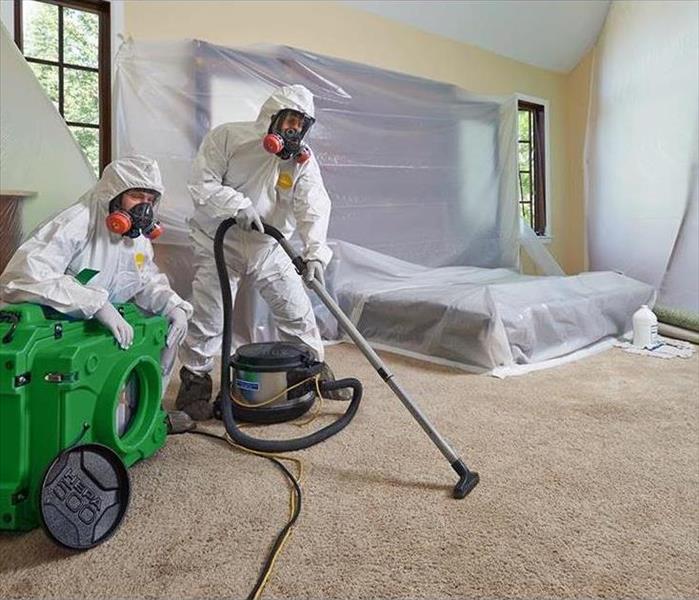Why a Mold Protocol is Required Before Remediation
9/18/2019 (Permalink)
 A written protocol outlines the necessary process that a company performing remediation must follow in order to achieve the best results.
A written protocol outlines the necessary process that a company performing remediation must follow in order to achieve the best results.
Mold Remediation Protocol
In the state of Florida, it is typically required that professional remediation organizations such as SERVPRO of Winter Park have a written mold remediation protocol in their possession before conducting any work. The protocol accurately assesses the proper treatment and removal of mold in areas of a building that have been affected by mold. Mold lab results can be combined with the findings of the professional mold inspection and an intimate understanding of the property’s layout. Using all of this knowledge and data, the remediation professionals can devise a plan that is tailored to the specific mold problems impacting a client’s property. Adhering to the protocol’s instructions ensures that the company performing the remediation can complete the process safely and promptly. Among other things, the protocol can specify when carpets, furniture, and other items that have been impacted by mold can still be cleaned and when it’s time for these materials to be removed.
Steps of the Protocol
The following are the steps required during the protocol process.
Interview
The property’s present conditions are surveyed and discussed with a person who is authorized to handle the property’s affairs.
Site Assessment
The areas that were affected are given a physical site assessment. The site assessment accomplishes several functions: the site assessment visually inspects the damage(s), gathers temperature and relative humidity (RH) readings, takes air samples and direct samples for mold (if necessary), and collects room dimensions to draft the required floor and room drawings to specify the location(s) of concern.
Air Sampling
Non-viable spore trap air sampling is designed to get an approximation of the concentration of airborne microbial (fungal) spores. The most commonly used entrance of the property is used to collect at least one outside sample. After the outside sample is taken, air samples are gathered in the property’s areas of concern. If elevated airborne spore concentration levels are detected, this may mean that there is one or more indoor microbial reservoir(s). It may also mean that the microbial remediation plan must include either the cleaning of the HVAC system(s) or of personal effects within the building.
Direct Sampling
Direct sampling is used to pinpoint the type and relative concentration of the microbial spores that have affected tested materials. The direct sampling results are also used as source contamination reference material during the air sampling process.
Florida State Guidelines
There currently are no federal guidelines in place concerning mold remediation and testing procedures. Certain states, including Florida, have qualification regulations in place for licensed Mold Remediators and Mold Assessors. In Florida, companies are not allowed to hold both an assessor and remediation license simultaneously. It is recommended that only Florida licensed Assessors or Remediators are used during both sides of the process.
Why is This Protocol Required?
There are two main reasons for this mold protocol: the potential for conflicts of interest and data that can be gained prior to any removal actions.
Conflict of Interest Potential
Most mold remediators in Florida will not take a remediation assignment without an independent mold assessment and protocol being performed beforehand. Some years ago, the state of Florida implemented licensure procedures for both mold assessors and remediators. The regulators were so convinced of the necessity of both of these services that it forbids a single company from taking on both roles for any given project.
Valuable Pre-Removal Data
The second reason why the protocol is necessary is that the majority of contractors will not start a remediation project without a protocol being conducted. Without the protocol, the contractors will not have reliable data on the extent of the spread of the microscopic spore and the particle varieties of mold contamination. Failing to have this data on hand before remediation can lead to accusations of subpar testing or adherence to procedure between the parties involved in the mold assessment and remediation process.
Benefits of the Protocol
The protocol ensures that mold contaminations are properly assessed to facilitate the remediation process. It protects property owners from having to pay for additional remediation fees. It also provides a safe and healthy environment for visitors, residents, remediation companies, and property owners.
SERVPRO of Winter Park
For properties in need of mold remediation, contact SERVPRO of Winter Park at (407) 678-5391.





 24/7 Emergency Service
24/7 Emergency Service